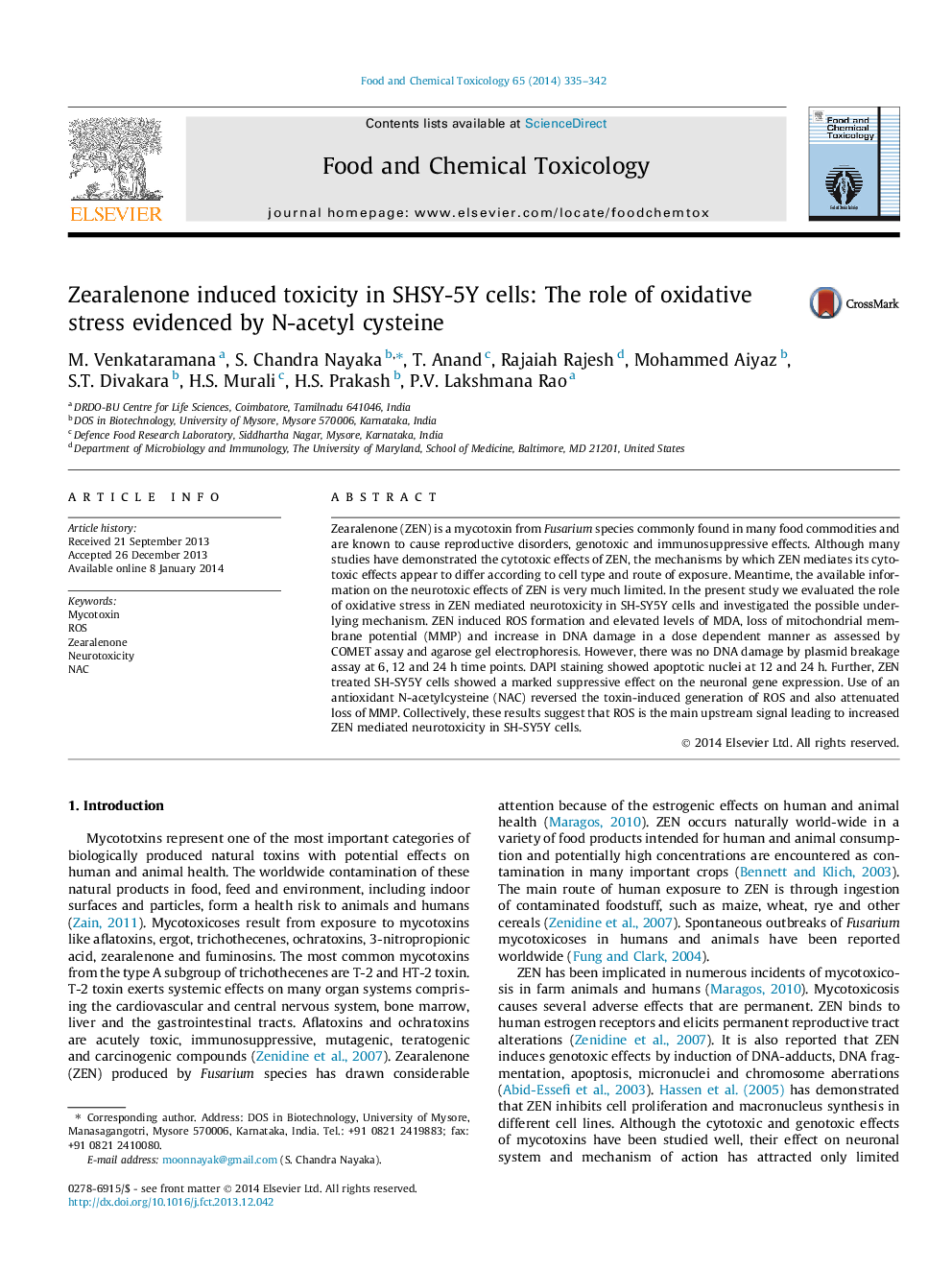| کد مقاله | کد نشریه | سال انتشار | مقاله انگلیسی | نسخه تمام متن |
|---|---|---|---|---|
| 5850681 | 1561779 | 2014 | 8 صفحه PDF | دانلود رایگان |
عنوان انگلیسی مقاله ISI
Zearalenone induced toxicity in SHSY-5Y cells: The role of oxidative stress evidenced by N-acetyl cysteine
دانلود مقاله + سفارش ترجمه
دانلود مقاله ISI انگلیسی
رایگان برای ایرانیان
موضوعات مرتبط
علوم زیستی و بیوفناوری
علوم کشاورزی و بیولوژیک
دانش تغذیه
پیش نمایش صفحه اول مقاله

چکیده انگلیسی
Zearalenone (ZEN) is a mycotoxin from Fusarium species commonly found in many food commodities and are known to cause reproductive disorders, genotoxic and immunosuppressive effects. Although many studies have demonstrated the cytotoxic effects of ZEN, the mechanisms by which ZEN mediates its cytotoxic effects appear to differ according to cell type and route of exposure. Meantime, the available information on the neurotoxic effects of ZEN is very much limited. In the present study we evaluated the role of oxidative stress in ZEN mediated neurotoxicity in SH-SY5Y cells and investigated the possible underlying mechanism. ZEN induced ROS formation and elevated levels of MDA, loss of mitochondrial membrane potential (MMP) and increase in DNA damage in a dose dependent manner as assessed by COMET assay and agarose gel electrophoresis. However, there was no DNA damage by plasmid breakage assay at 6, 12 and 24Â h time points. DAPI staining showed apoptotic nuclei at 12 and 24Â h. Further, ZEN treated SH-SY5Y cells showed a marked suppressive effect on the neuronal gene expression. Use of an antioxidant N-acetylcysteine (NAC) reversed the toxin-induced generation of ROS and also attenuated loss of MMP. Collectively, these results suggest that ROS is the main upstream signal leading to increased ZEN mediated neurotoxicity in SH-SY5Y cells.
ناشر
Database: Elsevier - ScienceDirect (ساینس دایرکت)
Journal: Food and Chemical Toxicology - Volume 65, March 2014, Pages 335-342
Journal: Food and Chemical Toxicology - Volume 65, March 2014, Pages 335-342
نویسندگان
M. Venkataramana, S. Chandra Nayaka, T. Anand, Rajaiah Rajesh, Mohammed Aiyaz, S.T. Divakara, H.S. Murali, H.S. Prakash, P.V. Lakshmana Rao,